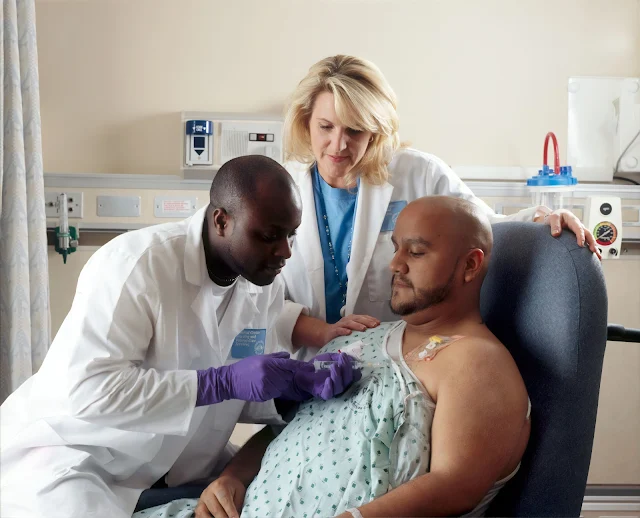Unveiling the Enigma: What is the Major Cause of Breast Cancer?
Meta Description: Discover the major cause of breast cancer and gain insights into the factors that contribute to its development. Explore FAQs and find essential information to empower yourself and promote breast health.
Introduction
Breast cancer is a significant health concern affecting women worldwide. It is crucial to understand the major cause of breast cancer to develop effective prevention strategies and promote early detection. In this comprehensive article, we delve into the mysteries surrounding this disease and shed light on the primary factors that contribute to its occurrence. So, let's embark on this journey to unravel the secrets behind breast cancer.
What is the Major Cause of Breast Cancer?
Breast cancer does not arise from a single cause but is rather a complex interplay of various factors. Understanding the major causes of breast cancer can empower individuals to make informed choices for their well-being and adopt preventive measures. Here, we explore the primary factors associated with breast cancer development.
1. Hormonal Imbalance: A Critical Factor
Hormonal imbalance plays a pivotal role in the development of breast cancer. Fluctuations in estrogen and progesterone levels can increase the risk of breast cancer in women. Estrogen, a hormone primarily produced in the ovaries, stimulates the growth of breast cells. Elevated levels of estrogen, whether due to natural factors or external influences, can fuel the growth of abnormal cells, leading to cancerous formations.
2. Genetic Predisposition: The Role of Inherited Mutations
Genetic predisposition is another significant factor contributing to breast cancer development. Inherited mutations in specific genes, such as BRCA1 and BRCA2, increase the likelihood of developing breast cancer. These gene mutations can be passed down through generations, elevating the risk of breast cancer in affected individuals.
3. Age: A Risk That Grows with Time
Age is an important risk factor for breast cancer. The incidence of breast cancer increases with advancing age. As women grow older, their breast tissue becomes more susceptible to genetic mutations and other environmental influences, making them more prone to developing breast cancer.
4. Lifestyle Choices: The Power of Healthy Living
Lifestyle choices significantly impact an individual's susceptibility to breast cancer. Certain habits, such as excessive alcohol consumption, smoking, and a sedentary lifestyle, can increase the risk of breast cancer. Conversely, engaging in regular physical activity, maintaining a healthy weight, and adopting a nutritious diet can help reduce the risk of breast cancer.
5. Environmental Factors: Unveiling the External Influences
Environmental factors also contribute to the development of breast cancer. Exposure to certain chemicals, radiation, and pollutants in the environment can increase the risk of breast cancer. While more research is needed to fully understand the extent of these environmental influences, taking precautions and minimizing exposure to potential carcinogens can be beneficial.
6. Reproductive History: Unraveling the Complexities
A woman's reproductive history can impact her breast cancer risk. Factors such as early onset of menstruation, late onset of menopause, having a first child at an older age or never having given birth, and never breastfeeding can influence the likelihood of developing breast cancer. These factors are linked to hormonal variations that can contribute to breast cancer development.
FAQs about Breast Cancer
To address common queries and provide a deeper understanding of breast cancer, here are answers to some frequently asked questions:
1. Can men develop breast cancer? Yes, though less common, men can develop breast cancer. While the disease primarily affects women, men should also be aware of the risk and seek medical attention if they notice any unusual changes in their breast tissue.
2. Does using antiperspirants or underwire bras increase the risk of breast cancer? No scientific evidence suggests that using antiperspirants or wearing underwire bras increases the risk of breast cancer. These claims are often based on myths and have been debunked by extensive research.
3. Is it possible to prevent breast cancer? While it is not possible to guarantee the prevention of breast cancer, adopting a healthy lifestyle, performing regular breast self-examinations, and undergoing routine mammograms can significantly contribute to early detection and better outcomes.
4. Does breastfeeding lower the risk of breast cancer? Yes, breastfeeding has been found to have a protective effect against breast cancer. The longer a woman breastfeeds, the greater the reduction in her risk of developing the disease.
5. Can stress cause breast cancer? While stress can have various effects on the body, there is no conclusive evidence to suggest that it directly causes breast cancer. However, stress can impact overall health and well-being, so managing stress levels is important for overall wellness.
6. What role does early detection play in breast cancer prognosis? Early detection is vital for improving breast cancer outcomes. Regular mammograms, clinical breast exams, and self-examinations can help identify breast cancer at an early stage when treatment is often more effective.
Conclusion
Breast cancer is a multifaceted disease influenced by a combination of factors. Understanding the major causes of breast cancer empowers individuals to make informed decisions about their health and take proactive measures to reduce their risk. By focusing on hormonal balance, genetic factors, lifestyle choices, environmental influences, and reproductive history, we can pave the way for a healthier future. Remember, early detection and regular screenings are essential for timely diagnosis and improved outcomes.

